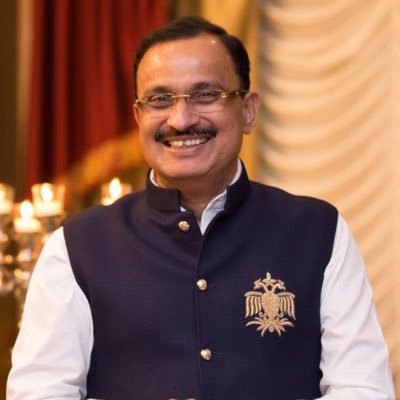
Praveen Kakkar. The election of the 15th President of India was successfully completed. Mrs. Draupadi Murmu became the newly elected President of India and senior leader Mr. Yashwant Sinha participated in the election in accordance with parliamentary dignity. In this article we will discuss about the importance of the post of President of India rather than the politics of Presidential Election. When the Constitution of India was being made, there was a serious consideration going on whether India should have a presidential system on the lines of America or a parliamentary i.e. Prime Minister system on the lines of Britain.
Even before the establishment of the Constituent Assembly, Pandit Jawaharlal Nehru requested the legal expert and eminent judge of that time, Mr. B.N. Rau, to create a future-oriented and present-day Constitution for India. BN Rau Saheb went to different countries of the world and studied their constitution and governance system.
After that, senior Congress leaders Pandit Nehru, Dr. Rajendra Prasad, Sardar Vallabhbhai Patel, Maulana Azad as well as Dr. Bhimrao Ambedkar etc. determined their opinion about the parliamentary system of India. Till that time, the equivalent post of the present President in India was that of Governor General. Pakistan, which became independent along with India, had appointed Mohammad Ali Jinnah as its first Governor General. But the people of India decided that India should have a democracy more or less on the lines of Britain, in which the cabinet would be supreme and the Prime Minister would become the first minister among the ministers of equal status.
The post of President was also decided in India, whose powers are somewhat like that of the Queen of Britain. But his powers are not like those of the President of America. The President of America is a little less than an emperor and much more powerful than the Prime Minister. Because the post of the President of India is like that of the King or Queen of Great Britain, it sometimes feels as if it is a rubber stamp. but it’s not like that. The President of India has to discharge most of his responsibilities on the advice of the Cabinet, but he also has ample opportunity to exercise discretion.
The main reason for this is that even if he is not directly elected by the public, the MLAs and MPs of the country vote for him. That is, the President is not a person who is elected immediately without elections.
It is expected from the President that if the Lok Sabha passes a law under the pressure of taking a populist decision and the intelligent members of the Rajya Sabha also put their stamp on it, then he has the right to send that law back to the Parliament once. Can send it to see again. The task of administering the oath to the President of India is not done by the Prime Minister or any other person but by the Chief Justice of India.
The President of India is the highest constitutional court where everyone can make their complaint. You must have seen many such cases when opposition leaders go with a delegation to the President to complain against the Prime Minister or the Central Government. In most of these cases, the President sends the concerned complaint to the Home Ministry, but complaining to the President has a lot of moral importance.
In this country, we have also seen such examples when the President, from Dr. Rajendra Prasad to Pranab Mukherjee, has at many places given very precise constitutional criticism of the functioning of the Parliament or has refused to blindly agree to the decisions taken by it. Because the concept of the President of India is very much like that of the King of Great Britain. And it is believed that the king can do no wrong. To avoid making mistakes, it is important that a person does not do any work with his own hands. That is why, like the King of Britain, the President of India also does not do any work himself, only the ministers perform all the work on his behalf.
Due to this status, the President is the first citizen of India and is treated with almost the same respect as kings were treated in ancient times. In India, the Prime Minister has been changing residence, but till date Rashtrapati Bhavan remains the same which was fixed for the first President. The terms of Prime Ministers also end before 5 years, but the President remains in office for a full 5 years.
If the President of India attends any event, his position is higher than that of the elected Prime Minister or any other parliamentary person. He is a living example of the dignity of Indian democracy. That is why we all should remember that the respect of the President is equivalent to the respect of the country. He gives up all his political passions and relationships even before contesting the elections.
In the entire country, he also has the right to reconsider the decision given in the Supreme Court. This position demands the highest morality and highest honor. Because if the first thing does not come then the second thing cannot be given even if desired. We should understand these characteristics and responsibilities of the President of India. And under the pretext of these characteristics, the complexity and decentralized nature of Indian democracy should also be understood.
